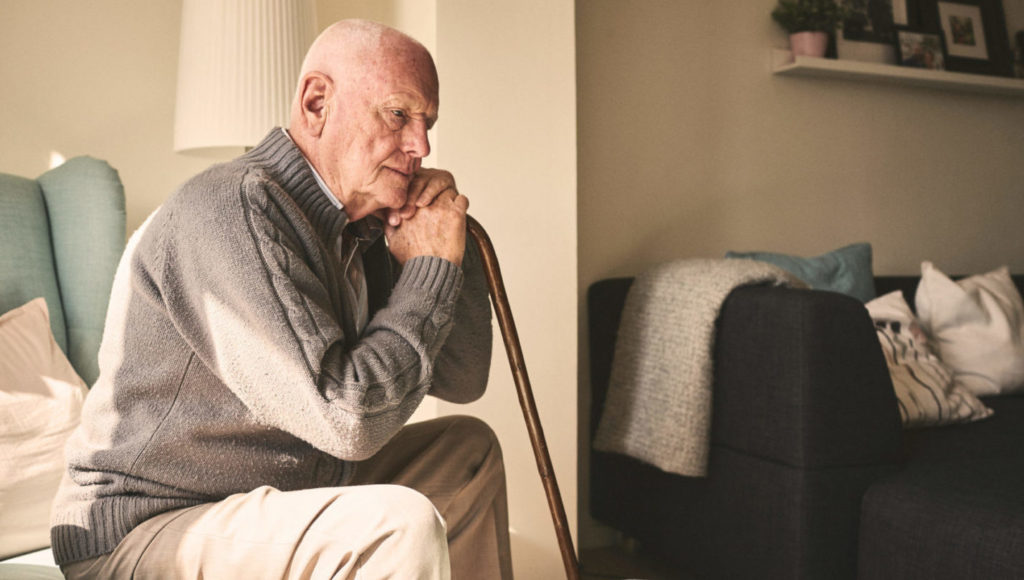
Older adults who are moderately and severely lonely have a higher probability of shifting to a long-term care community or home care compared with those who aren’t lonely — and severely lonely women have the highest risks for those transitions, a new study shows.
The report, which was published Monday in the Journal of the American Geriatrics Society, evaluated healthcare trajectories of people who were and weren’t lonely. The data came from the 2008/2009 Canadian Community Health Survey – Healthy Aging, and included people from Ontario, who were aged 65 and over. The people were classified at the start of the study as not lonely, moderately lonely or severely lonely using the Three-Item Loneliness Scale. Researchers followed their data over a 12-year span, calculating their risks from moving from the community to long-stay home care, long-term care communities or dying. Of the people, the average age was 77.
There were 2,684 respondents in total; 23.7% were moderately lonely and 15.6% were severely lonely. Fewer people who were lonely continued to live in the community with no transitions to other settings such as home care or long-term care communities. In fact, 20.3% who weren’t lonely stayed in the community compared with 17.5% who were moderately lonely and 12.5% who were severely lonely.
Of the people, 95.4% started in community settings without home care. By the end of the study, there were 13,827 transitions, and 3,919 were from the community to inpatient hospitalization and 3,118 went from hospitals to the community. Overall, 17.3% were admitted to long-term care and 34.3% died.
Each year, the transition risks to long-term care and home care were higher in women, though it increased among both sexes according to severity for loneliness.
“Lonely older female and male respondents were more likely to need home care and long-term care, with severely lonely female respondents having the highest probability of moving to these settings,” the authors reported.
The researchers said that understanding the nature of healthcare living transitions, and the likelihood for them, can help people plan ahead for care and respond to loneliness. Overall, it may improve the care of people who experience loneliness.




